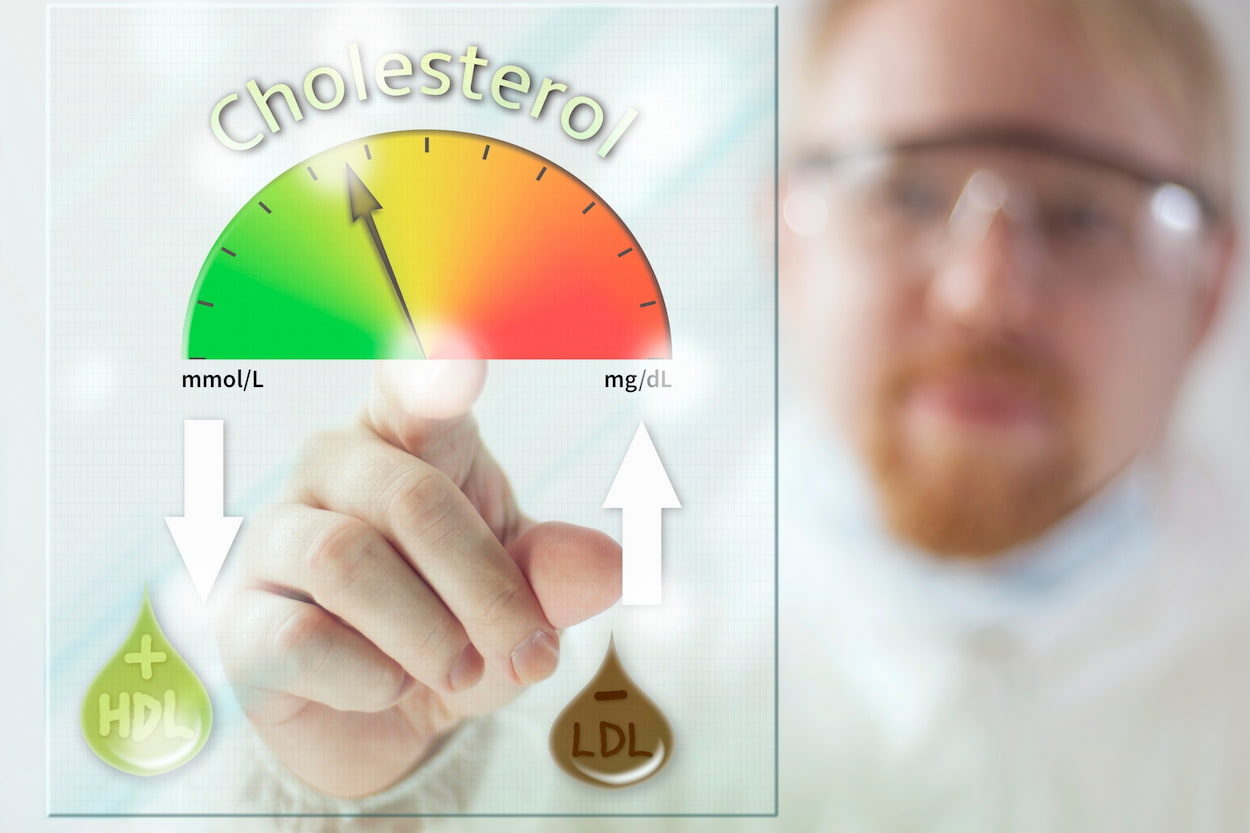
What Is Normal Cholesterol Level?
Cholesterol is a fatty substance that is essential for the body to function properly. However, when cholesterol levels in the blood become too high, it can lead to serious health problems, such as heart disease, stroke, and diabetes.
Knowing your cholesterol numbers is crucial for maintaining good health. In this article, we will explore the importance of cholesterol levels and what is considered a normal cholesterol levels for adults.
Why Are My Cholesterol Numbers Important?
Cholesterol is a waxy substance that is carried through the blood by proteins called lipoproteins. There are two types of lipoproteins: low-density lipoprotein (LDL) and high-density lipoprotein (HDL). LDL is known as "bad" cholesterol because it can build up in the walls of the arteries, leading to blockages that can cause heart attacks and strokes. HDL is known as "good" cholesterol because it helps to remove excess cholesterol from the body.
Having high levels of LDL cholesterol and low levels of HDL cholesterol can increase your risk of heart disease and stroke. Therefore, it is important to know your cholesterol numbers and take steps to keep them within a healthy range.

What Kind Of Test Measures Cholesterol?
To measure cholesterol levels, a blood test called a lipid profile or lipid panel is usually performed. This test measures several types of fats or lipids in your blood, including total cholesterol, LDL cholesterol, HDL cholesterol, and triglycerides. The lipid profile is typically performed after fasting for 9-12 hours, as eating can affect cholesterol levels in the blood.
During the test, a healthcare professional will draw blood from a vein in your arm using a needle. The blood sample is then sent to a laboratory, where it is analyzed to determine your cholesterol levels. Your healthcare provider will usually give you instructions on how to prepare for the test, such as fasting before the test, to ensure accurate results.
In some cases, your healthcare provider may order additional tests to evaluate your risk of heart disease, such as a high-sensitivity C-reactive protein (hs-CRP) test or a coronary calcium scan. These tests can help identify inflammation and other risk factors for heart disease that may not be detected by a standard lipid profile test.
What Are Normal Cholesterol Levels?
Normal cholesterol levels refer to the optimal levels of different types of cholesterol that are considered healthy for the body. The recommended levels of cholesterol and normal ldl levels can vary based on age, gender, and other factors, but in general, the following are considered normal cholesterol levels for adults:
Total cholesterol: Less than 200 milligrams per deciliter (mg/dL)
LDL cholesterol ( normal ldl ): Less than 100 mg/dL
HDL cholesterol:
Women: 60 mg/dL or higher
Men: 40 mg/dL or higher
Triglycerides: Less than 150 mg/dL
It is important to note that while these levels are considered normal, they may not be optimal for everyone. Your healthcare provider may recommend different levels based on your individual health status and risk factors for heart disease.
Normal Cholesterol Levels By Age Chart
The following chart provides general guidelines for normal cholesterol levels by age:
Age Total Cholesterol (mg/dL) LDL Cholesterol (mg/dL) HDL Cholesterol (mg/dL) Triglycerides (mg/dL)
0-19 Less than 170 Less than 110 More than 45 Less than 75
20-29 Less than 200 Less than 130 More than 50 Less than 100
30-39 Less than 220 Less than 160 More than 50 Less than 135
40-49 Less than 240 Less than 180 More than 50 Less than 150
50-59 Less than 260 Less than 190 More than 50 Less than 165
60-69 Less than 280 Less than 210 More than 50 Less than 180
70+ Less than 280 Less than 220 More than 50 Less than 180
It is important to note that these are general guidelines and your healthcare provider may recommend different levels based on your individual health status and risk factors for heart disease. Additionally, cholesterol levels may fluctuate over time and can be affected by a variety of factors, such as diet, exercise, and medication use.
What’s Considered High Cholesterol?
High cholesterol refers to levels of cholesterol in the blood that are above the optimal range and may increase the risk of heart disease and stroke. The following are considered high cholesterol levels:
Total cholesterol: 240 milligrams per deciliter (mg/dL) or higher
LDL cholesterol: 130 mg/dL or higher
HDL cholesterol:
Women: Less than 50 mg/dL
Men: Less than 40 mg/dL
Triglycerides: 150 mg/dL or higher
It is important to note that high cholesterol levels may not always cause symptoms and can only be detected through a blood test. Therefore, it is important to have your cholesterol levels checked regularly, especially if you have risk factors for heart disease, such as high blood pressure, diabetes, or a family history of heart disease.
If your cholesterol levels are high, your healthcare provider may recommend lifestyle changes, such as a healthy diet and regular exercise, or medications to lower your cholesterol levels and reduce your risk of heart disease.
Cholesterol Levels For Men And Women
Cholesterol levels can vary between men and women. In general, men tend to have higher levels of cholesterol compared to women of the same age. However, the recommended levels for both men and women are the same.
HDL Levels Differ For Men And Women
As mentioned, HDL cholesterol levels can differ for men and women. While the AHA recommends an HDL cholesterol level of 60 mg/dL or higher for women, the recommended level for men is 40 mg/dL or higher. This is because men have a higher risk of heart disease and are more likely to have low HDL cholesterol levels.
Cholesterol Levels Can Rise During Pregnancy
During pregnancy, cholesterol levels can rise due to hormonal changes and increased energy needs. This is a normal part of pregnancy and is not usually a cause for concern. However, if cholesterol levels remain high after pregnancy, it could increase the risk of heart disease later in life. It is important for pregnant women to have their cholesterol levels checked regularly and to follow a healthy diet and exercise regimen.
Cholesterol Levels Rise During The Menopause
During menopause, cholesterol levels can rise due to a decrease in estrogen levels. This can increase the risk of heart disease and stroke. Women going through menopause should have their cholesterol levels checked regularly and should follow a healthy diet and exercise regimen to keep their cholesterol levels within a healthy range.
How Often Should I Get My Cholesterol Checked?
The AHA recommends that adults aged 20 years or older have their cholesterol levels checked every four to six years. However, if you have a family history of high cholesterol or heart disease, or if you have other risk factors for these conditions, your doctor may recommend more frequent testing.
Keep Your Cholesterol At A Normal Level With Healthy Türkiye
In conclusion, knowing your cholesterol numbers is essential for maintaining good health. Optimal cholesterol levels vary based on age, gender, and other factors, but the recommended levels are generally less than 200 mg/dL for total cholesterol, less than 100 mg/dL for LDL cholesterol, and 60 mg/dL or higher for HDL cholesterol for women and 40 mg/dL or higher for men.
If your cholesterol levels are too high, you can take steps to reduce them, such as eating a healthy diet, exercising regularly, and taking cholesterol-lowering medications if necessary. You can talk to Healthy Türkiye’s doctor about your cholesterol levels and what you can do to maintain a healthy range.




